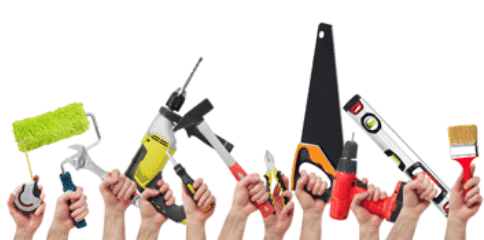Why tradespeople make a minimum charge

A minimum charge is made when work is carried out. It is not a “Call Out Charge”.
A tradesperson’s minimum charge will usually be made when they carry out work that requires their knowledge, skills, training or tools to execute.
It is the minimum amount a tradesperson will charge to attend and carry out work. It is not a “call out charge” which would be made irrespective of whether work is executed.
When no work is executed (for example when attending to provide a cost or when the tradesperson is not able to carry out the work at that point in time) then no minimum charge would apply.
However, even when the work is “a two minute job” a minimum charge will apply. Here, are three reasons why:
Reason 1: To cover overhead costs
As with any profession tradespeople have operating / overhead costs.
- Insurance: public liability, vehicle insurance, health insurance, insurance of tools, employer insurance
- Tax: road tax, corporate tax, PAYE, national insurance
- Transportation: vehicle purchase, vehicle maintenance, fuel
- Administration: time spent administering supplier accounts, sending customer communications, costs of stationery, job management software
- Tools: purchase and maintenance of tools
- Training: initial qualifications and ongoing attendance at courses legally required
- Trades body membership fees: for example “Gas Safe Register” or “NICEIC” / “SELECT”
If tradespeople attend a job, spend time getting to and from it, use their skills, tools, training, knowledge and experience and don’t make a charge to cover a portion of these overheads they will soon go out of business.
Reason 2: To provide clarity
We all like to know what we are in for when buying a product or commissioning a service.
However, for a tradesperson turning up to view a job for the first time and execute it there and then it’s not usually possible to work from a standard price list. Equally if diagnostic or investigative work is required then a set price cannot be provided, but a minimum charge can be advised.
In summary, applying a minimum charge offers clarity and certainty to a customer and ensures a tradesperson remains financially viable.
Reason 3: Provision of a service
All professions providing a service make a charge for that service; mountain guides, doctors, lawyers, fitness instructors, psychologists, car mechanics and so on.
This service often comes without a guarantee of results; a lawyer can’t guarantee to win your case, a doctor can’t guarantee to make you better, a fitness instructor can’t guarantee to get you fit, a mountain guide can’t guarantee to get you to the top of Everest. They will all try their best and ask to be paid for the service they provide.
Tradespeople also provide a service (sometimes good, sometimes bad!) and to stay in business they must charge for that service when it is provided. Even if time on site is only 10 minutes.
How much is a minimum charge?
This will vary from trades person to trades person but is usually based on around the “First Hour” charge for a tradesperson.
When is a minimum charge applied?
When a tradesperson provides a service i.e. uses their skills, knowledge, training, tools or experience to carry out work.
It would not be applied if the tradesperson were not able to carry out the required work or when attending to provide a quote or estimate.
Minimum charges will still apply in the following circumstances:
- If the work only takes a few minutes.
- The tradesperson diagnoses, but does not repair, a fault – a quote to repair a fault may, subsequently, be provided. For example if a fault could not be repaired within the time (usually 1 hour) covered by the minimum charge.
- The tradesperson has only opened up an area to be able to investigate a problem.
- To carry out work previously viewed and / or costed.
What’s the difference between a minimum charge and a call out charge?
| Minimum Charge | Call Out Charge |
|---|---|
| Charged only when work executed | Charged whether work completed or not |
| Time focused | Attendance focused |
| Usually lower than a Call Out Charge | Often applied for emergency or out of hours work |
HomeForce Tip: Different tradespeople will have different charging structures. Some will make minimum charges, some will make call out charges. The same tradesperson may vary the way they charge depending on circumstances. Therefore, always ensure you understand how and under what circumstance a tradesperson will charge before asking them to attend a job.
Arrange a tradesperson now:
- Complete our Tradesperson Booking Form
- Tel: – 0131 315 0000
- Email: – info@homeforce.co.uk



